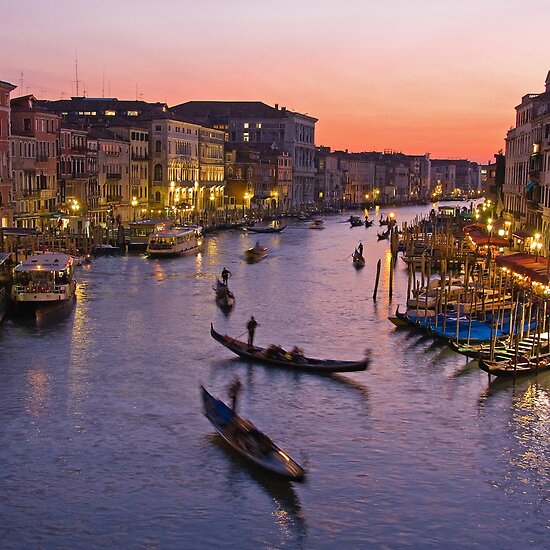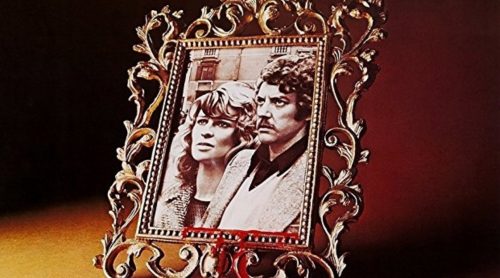Máscaras venecianas (part 3)
 Thursday, March 12, 2009 at 23:16
Thursday, March 12, 2009 at 23:16 The third part to the Bioy Casares story ("Venetian Masks"). You can read the original in this collection.
 Of course, I no longer remembered a thing about the costume competition; thinking of Daniela and the emotion of seeing her were my sole preoccupations. Now and then in painful stabs my conscience felt what was at stake at our meeting. After all my suffering I was about to revive pain that had, if not vanished, then fallen silent. Did I nourish any illusions of finding a way – soon, in an opera box, at an opera gala – to win back Daniela? Would I do that to Massey? Why was I pondering a possibility that did not exist ... It was clear that the expectation of seeing Daniela was enough to cast the die.
Of course, I no longer remembered a thing about the costume competition; thinking of Daniela and the emotion of seeing her were my sole preoccupations. Now and then in painful stabs my conscience felt what was at stake at our meeting. After all my suffering I was about to revive pain that had, if not vanished, then fallen silent. Did I nourish any illusions of finding a way – soon, in an opera box, at an opera gala – to win back Daniela? Would I do that to Massey? Why was I pondering a possibility that did not exist ... It was clear that the expectation of seeing Daniela was enough to cast the die.
When I arrived the gala had already begun. An usher guided me to the box located in one of those so-called balconies. As I opened the door the first thing I saw was Daniela, wearing a domino and eating chocolate; at her side was Massey. Daniela smiled at me and behind her mask – which she didn't remove as I would have wanted – her eyes gleamed. She whispered to me:
"Pull up a chair."
"I'm fine here," I said.
So as not to make a sound I sat in the first seat I could find.
"You won't be able to see anything from there," said Massey.
I was perturbed. My happiness changed to tacit annoyance at Massey's presence in the box. A soprano began to sing:
Vieni, deh, vieni
And Daniela, as if fascinated, turned her attention towards the stage and her back to me. Doubtless unjustly, I felt that the woman of my life, after an interminable separation, had given (I believe the right word here is lent) me her attention for less than a minute. The most extraordinary thing about this, perhaps the saddest as well, was that I reacted with indifference. I felt so distant that I was able to learn about the luckless loves of Ana, Walter and Lorelei, who out of spite and with the aim of obtaining magic powers married a river (the Rhine, if I'm not mistaken). Initially the only similarity I perceived in the story that was developing and my own tale was that each involved three people; I needed nothing more to follow the performance with any great interest. At times, true enough, I wallowed in my uncertainty ... I found myself in a unforeseen and shocking situation: Daniela and I were looking at each other like strangers. Even worse, I wanted to leave. At intermission Daniela asked:
"Who is the angel who's going to bring me chocolates like these? They sell them here out front, in the bar of the piazza."
"I'll get them," I hastened to answer.
With disgust I heard Massey's voice declare:
"I'll go with you."
Surrounded by masks and men in formal wear, we slowly descended the marble staircase. We took off running as we left the theater because out on the square it was very cold. In the bar Massey chose a table against the door. Then a girl dressed as an old woman in a crinoline, a "noble" and a "Turk" all came in. Lost in cheerful banter, they stayed near the open door.
"This draft is getting to me," I said. "Let's change tables."
We moved to a table at the back. Then they took our order: a strega for me, coffee for Massey, and, of course, the chocolates. We hardly spoke at all, as if there were only one topic of conversation and it was forbidden. When we getting ready to pay there were no unoccupied tables; no matter how many times we called them the waiters kept walking by. The cold had brought quite a few customers. Suddenly amidst the rumble of conversation an unmistakeable voice could be heard in all clarity, and the two of us looked over towards the front door. I don't know why it seemed that we hesitated ever so slightly as if each of us sensed the surprise of the other. At our original table (others had been placed next to it and pushed together), I saw harlequins, columbinas, and two or three dominos. Then I knew which one was Daniela. The gleam in her eyes looking at me through the mask left no room for doubt.
Visibly nervous, Massey consulted his watch and said:
"It's about to start." Mentally I begged him not to insist on his story about not getting in if we don't arrive on time. And what he did say annoyed me even more: "Wait for me in the box."
"What is he thinking getting rid of me just because Daniela came?" I thought, indignant. A moment later I reconsidered: everyone sees matters in his own way and perhaps Massey felt he was acting completely within his rights since he married her after I had let her go.
I said:
"I'll bring her the chocolates."
He gave them to me hesitantly as if my request had bothered him.
Once I got to her table, Daniela looked me in the eye and whispered:
"This time tomorrow, same place."
She also said another word, a pet name which only she knew. In an aura of happiness I left the bar. It was if a veil had been lifted and I asked myself why it took me so long to comprehend that Daniela had only pretended to be distant in the opera box. I immediately discovered that I hadn't given her the chocolates and was about to turn around when I realized that reappearing with them in hand might lend a ridiculous flourish to what had been a marvelous moment. Of one thing, however, I was sure: it was far too cold for me to hang around the piazza. At La Fenice I went straight for our box. I didn't dare look at Daniela, seated as she had been before, her elbows on the red velvet of the banister. One might say that in all this time she hadn't changed positions. I managed to pass her the chocolates but in reality I was rather bewildered. A suspicion, a stupid hunch – I remembered that Massey that morning had said "my wife" and not "Daniela" – immediately made me ask her to remove her mask. To soothe my worried mind, I began to concentrate on the movements of her hands, which first drifted back towards the hood of the domino and then right away straightened her somewhat tussled hair. How I missed those days! She didn't need to remove her mask, I thought, because only she possessed such grace. I tried to dissuade her, but soon enough there was Daniela, her face uncovered. Even though I had always remembered her as incomparable, as unique, the perfection of her beauty dazzled me. I whispered her name.
I soon regretted having done so. Something odd had happened: that word, so dear, so darling, here at this time, made me very sad. The world had become incomprehensible to me. Amidst the confusion I had a second hunch which provoked true displeasure: "Twins?" And so, as if I had discerned a suspicion and wanted to explain it like before, I stood up very carefully so that they wouldn't hear me slip out into the hall. At the door I wondered whether I wasn't wrong, whether I wasn't behaving badly with Daniela. I turned and whispered:
"I'll be back."
I ran through the horseshoe-shaped gallery which surrounded the boxes. At the precise moment in which I was hurrying down the stairs I spotted Massey slowly going up, and I hid behind a group of masks. Had I been asked what I was doing there I could not have possibly come up with an acceptable response; perhaps my presence remained unnoticed. Before Massey reached the box entrance, I stepped out from behind the masks and ran downstairs. Like someone throwing himself into icy waters, I went out onto the piazza. Arriving at the bar I noticed that now there were fewer people and that Daniela's seat was empty. I spoke with the girl disguised in a domino.
"She just left, with Massey," she said, and must have noticed my confusion because she then added thoughtfully: "She can't have gotten far. Perhaps you can catch up to her on the street Delle Veste."
I took on the search resolved to overcome all possible difficulties and find her again. Since I was healthy, I was able to contort my will to this one purpose. It was probably the unshakeable anxiety of getting Daniela back, the real Daniela, as well as an impulse to prove that I loved her and that, if I left her once, it was not owing to a lack of love. To prove all that to Daniela and the world. At the second street I turned right; I had the feeling that everyone was turning right with me. I felt pain, a blow that choked the air from my throat: it was the cold. I have discovered that whenever I recall my illness I actually fall sick; so as to think of something else I told myself that we were not as brave as the Venetians: natives of Buenos Aires did not roam the streets on a night like this. I tried to reconcile the need to accelerate my pace with the need to look attentively all around. As much as possible, I had to scrutinize women in black, and of course, women in dominos. Before a church I was sure I recognized her; when I got closer, however, I found another person. The disappointment produced in me physical discomfort and unease. "I can't lose my head," I told myself. So as not to lose my nerve, I thought that it was funny that I literally expressed what I felt without even wanting to do so. As it were, I maintained my balance with great difficulty.





